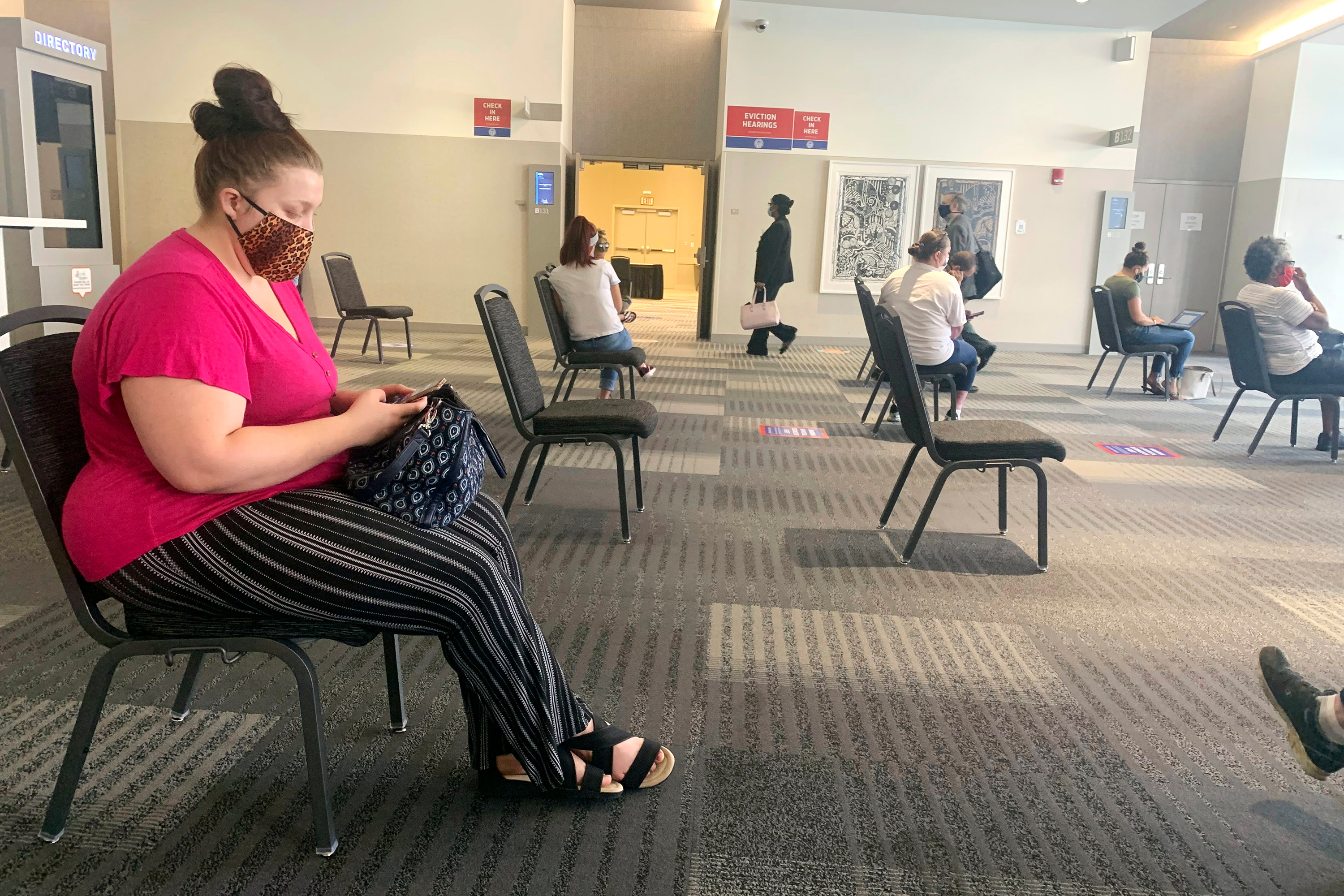First, there is the lack of consistency. Housing courts across the country use a patchwork of services, including Webex, Zoom, BlueJeans, and others. In some places, like St. Louis, which has both city and county courts, the situation is split: one court uses Zoom and the other Webex. On top of this, some courts are fully virtual while others are hybrid, and others switch between virtual, hybrid, and in-person–sometimes during the same cases. This leads to many opportunities for confusion: Diamond, for example, says that she was required to appear in person for her second hearing, but the one after that is scheduled for Webex.)
On top of this, notifications from Zoom or Webex can get lost in spam, leading to tenants missing court appearances and, in some cases, receiving default eviction judgments as a result.
Then there is the question of access. With so many services closed, including the libraries and schools that might provide free WiFi, some defendants have been unable to access the meetings at all. Others have had difficulties submitting documents either in person or via web upload.

AP PHOTO/FARNOUSH AMIRI
Tenants with disabilities, like hearing loss, or those who require translation help, are limited even further. Camp says he was horrified by one case during which a tenant who was being evicted over a video conference had to rely on the same property manager evicting him to translate for the court. If the hearing was held in person, Camp says, the court would have been required to provide translation services.
Valerie Hartman, a public information officer for Jackson County’s 16th Circuit Court, which is not where the incident Camp described occurred, says that her court has made a number of accommodations for people with disabilities and provide interpreter’s services when requested. “All parties always have the option of reaching out to the judge to request that their hearing be held in person rather than virtually,” she says.


